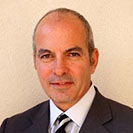Advisors love to talk about alpha—the mystical extra return that separates the merely competent from the brilliant. But here’s a secret: most advisors could find a lot more alpha by looking in the mirror than in the markets.
That’s right. The most undervalued source of performance isn’t buried in your investment models or tucked away in some ETF sleeve. It’s hiding in your inbox, your CRM, your workflows, and those half-finished spreadsheets you swore you’d clean up “when things slow down.” Spoiler: they never do.
Call it what it is: operational drag. Redundant systems, duplicated tasks, endless emails about status updates—death by inefficiency. And yet, few advisors realize that efficiency itself can produce real, measurable alpha. Not for the markets—for the business.
We’ve entered the age of the efficiency dividend—the compounding return that comes when advisors streamline, automate and outsource the things that don’t require their expertise.
If you’ve ever missed a client follow-up because your CRM didn’t sync with your email, you already know how inefficiency feels. It’s the creeping frustration that builds up when small gaps—missed notes, outdated reports, scattered data—start to snowball into real consequences.
And clients can tell. Nothing erodes confidence faster than a team that looks disorganized. Every delayed response, every lost document, every “sorry, can you resend that?” chips away at credibility.
Meanwhile, you and your team are stuck working in the business instead of on it. Hours vanish into administrative quicksand. Advisors complain about “time poverty,” but let’s be honest—some of that poverty is self-inflicted.
If we measured inefficiency the same way we measure investment risk, most firms would be deep in the red.
Here’s the twist: efficiency isn’t just a cost saver—it’s a performance enhancer. The most valuable and marketable advisory firms are the most streamlined. Things don’t fall through the cracks, deadlines aren’t missed, and the lived client experience actually matches the brand promise.
When you cut redundancy and automate routine processes, you’re not just freeing up capacity; you’re multiplying your impact. Every hour reclaimed from admin work is an hour that can be redeployed toward strategy, client engagement, or growth.
This is what some are calling Advisor’s Alpha 2.0—value not just from investment decisions, but from operational excellence.
And clients feel the difference. They might not understand your workflow software or your integration stack, but they absolutely notice when communication is timely, reports are accurate and their advisor seems genuinely present instead of perpetually distracted.
It’s worth noting that the world’s most efficient businesses didn’t get that way by doing everything themselves. Apple doesn’t manufacture every component of the iPhone; Amazon doesn’t personally deliver every package. They focus on what creates the most value and outsource the rest.
Advisors should do the same.
Outsourcing non-core functions—tax preparation, estate modeling, investment operations, compliance support—doesn’t diminish control. It amplifies focus. It lets advisors spend more time in the zone of genius: planning, guiding and building trust.
Efficiency, in this sense, isn’t just about doing things faster. It’s about doing fewer things better.
The firms that have embraced this mindset are scaling faster, serving more families and commanding higher valuations. In a market where AUM multiples are increasingly tied to process quality and client experience, the efficiency dividend doesn’t just boost margins—it increases enterprise value.
If you need a pop-culture parallel, look no further than the corporate world’s new favorite buzzword: “productivity paranoia.” As companies push for automation and AI adoption, the fear isn’t that robots will take our jobs—it’s that inefficiency will.
The same applies to advisory firms. Technology isn’t replacing advisors; it’s exposing the ones who haven’t adapted. Those who cling to outdated systems and manual processes are finding themselves outpaced not by cheaper competitors, but by smarter ones.
Efficiency is no longer optional. It’s survival.
When you start viewing your operations as a source of return, everything changes. Efficiency reduces errors, enhances consistency and strengthens your client relationships—all while quietly padding your margins.
And it compounds. Every process you streamline creates capacity for growth, which in turn creates the resources to streamline further. It’s the same principle as compound interest—only the currency is time, not dollars.
In a world where market returns are unpredictable, efficiency is one of the few levers advisors can control completely. It’s the rare form of alpha that doesn’t depend on timing, trends or luck.
Let’s be honest—markets will always be messy. But your practice doesn’t have to be.
The most successful advisors of the next decade won’t necessarily be the best stock pickers. They’ll be the ones who build businesses that run smoothly, scale intelligently and deliver an experience so consistent it feels effortless.
That’s the efficiency dividend: the quiet compounding of saved time, reduced stress and elevated client trust.
In the end, the smartest advisors don’t just chase alpha—they engineer it.
True efficiency isn’t just about saving time—it’s about amplifying value. With Financial Gravity’s Turnkey Multi-Family Office Charter, advisors can eliminate operational drag, automate non-core functions, and focus entirely on strategy, client outcomes and growth. Our integrated tax, estate and planning infrastructure transforms inefficiency into measurable alpha for both the advisor and the client. Book a call today to see how you can turn streamlined operations into a compounding advantage for your firm. Learn more by watching this short video.


















